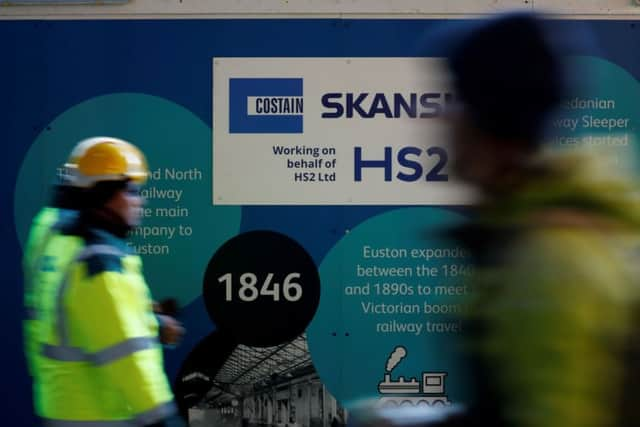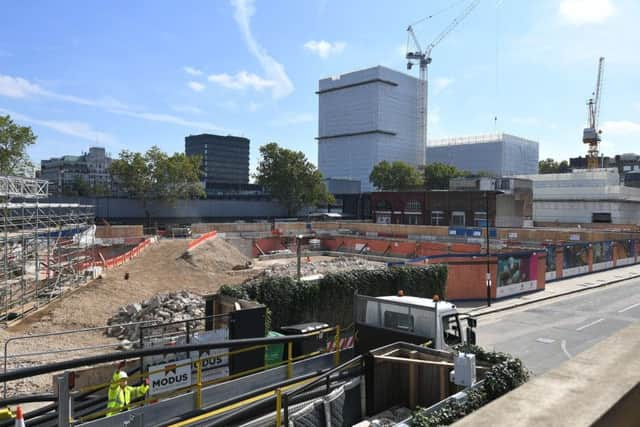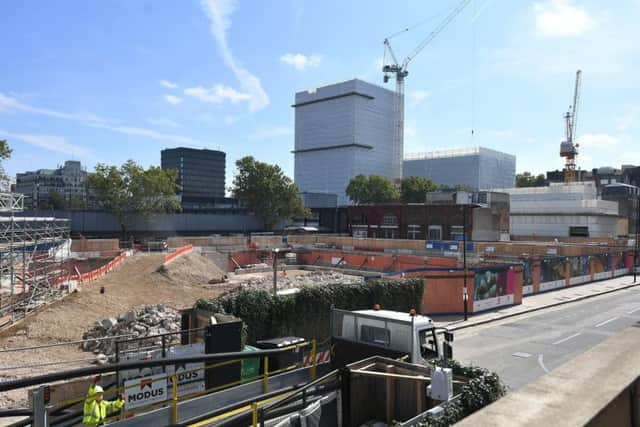Why HS2 is now even more vital to our econonic future despite the cost – Andrew Adonis
They were wildly over budget, long delayed – and the Treasury wanted to cancel them all.
HS2 is going through this stop-start phase.


Advertisement
Hide AdAdvertisement
Hide AdLet’s hope it survives or it will ultimately be built over an even longer timescale, costing even more.
If this weren’t Britain, one would make the argument for HS2 from international best practice.


Advertisement
Hide AdAdvertisement
Hide AdThere is a reason why Japan, France, Germany, Italy, China, Korea, Holland, Belgium, Spain and Taiwan all have high-speed rail.
It works.
It is the best modern, green way to connect big cities like Manchester, Leeds, Birmingham and London.


Japan opened its key high speed line linking Tokyo, Nagoya and Osaka – a vital inter-urban corridor akin to London-Birmingham-Manchester-Leeds – 56 years ago.
Advertisement
Hide AdAdvertisement
Hide AdIt has been the making of modern Japan, just as the TGV from Lille and Paris to Lyon and Marseille has been the making of modern France.
Any suggestion that they are ‘white elephants’ would be greeted with incredulity.


From the outset, the central argument for HS2 has been about capacity, with speed and connectivity as significant additional benefits.
Since I launched HS2 in 2010, the imperative for more capacity has become greater still.
Advertisement
Hide AdAdvertisement
Hide AdHS2 links the four largest cities and city regions of the UK, centred on London, Birmingham, Manchester and Leeds, while also providing direct services to Glasgow, Edinburgh, Liverpool, Newcastle and cities in South Yorkshire and the East Midlands.
It could not be more vital to our economic future.
Rail demand has doubled in the past 15 years alone. HS2 does not just meet this demand for intercity travel; by freeing up substantial capacity on the existing lines it will make it possible to run far more freight trains and commuter and regional passenger services.
The big question is, if not HS2, what? The only alternative to HS2 for dealing with the capacity crunch is massive further upgrades of the existing Victorian railway.
The last modest upgrade of the West Coast Main Line cost £9bn, £1bn of which was simply to pay train operators for not running trains due to the disruption in a decade of constant upheaval – quite apart from the huge cost of disruption borne by passengers and businesses.
Advertisement
Hide AdAdvertisement
Hide AdUpgrading a busy main-line railway is like conducting open-heart surgery on a moving patient.
To put this in perspective, the Cameron government identified an upgrade alternative to HS2 from London to Birmingham, Manchester and Leeds.
It costs half as much as HS2 but provides only a quarter of the extra capacity, and it involves decades of chronic passenger disruption. As for journey times, as HS2 proceeds north of Birmingham, the time savings become steadily greater: an hour off every journey between London and Manchester, Sheffield and Leeds. How better to bridge the North-South divide?
HS2 not only transforms connections between London and cities in the Midlands and the North but also between the cities of the Midlands and the North, and within the North itself.
Advertisement
Hide AdAdvertisement
Hide AdThe Victorian railway companies built mostly separate main lines from provincial cities to London, which is why rail links between most of our regional cities are so bad.
Birmingham and Manchester are only 67 miles apart, yet the rail journey time between them takes one and a half hours. It will be just 40 minutes by HS2.
Sheffield to Manchester could be reduced to 30 minutes if HS2 is aligned with Northern Powerhouse Rail, the proposed west-east rail upgrade between the Northern cities.
Oh, and try the ‘expensive white elephant’ jibe on commuters crammed into the Jubilee line to Canary Wharf. The response you will get is – why is Crossrail, being built to relieve congestion on the Jubilee and Central lines, still not open?
Answer, it is way over budget and delayed.
Lord Adonis is a former Transport Secretary. This article also appears in this week’s New European.